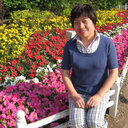Astragalus-containing Traditional Chinese Medicine, with and without prescription based on syndrome differentiation, combined with chemotherapy for advanced non-small-cell lung cancer: a systemic review and meta-analysis.
Mots clés
Abstrait
OBJECTIVE
Traditional Chinese Medicine (tcm) is used in China as part of the treatment for non-small-cell lung cancer (nsclc) and often includes prescription of herbal therapy based on syndrome differentiation. Studies of various Astragalus-based Chinese medicines combined with platinum-based chemotherapy in the treatment of lung cancer are popular in East Asia, particularly in China. The aim of the present study was to perform a systematic review and meta-analysis comparing platinum-based chemotherapy alone with platinum-based chemotherapy plus Astragalus-based Chinese botanicals, with and without prescription based on syndrome differentiation, as first-line treatment for advanced nsclc.
METHODS
We searched the Chinese Biomedical Literature database, the China National Knowledge Internet, the VIP Chinese Science and Technology Periodicals Database, PubMed, embase, the Cochrane databases, and abstracts presented at meetings of the American Society of Clinical Oncology, the World Conference on Lung Cancer, the European Society for Medical Oncology, and the Chinese Society of Clinical Oncology for all eligible studies. Endpoints were overall survival; 1-year, 2-year, and 3-year survival rates; performance status; overall response rate; and grade 3 or 4 adverse events. Subgroup analyses based on herbal formulae individualized using syndrome differentiation or on oral or injection patent medicines were performed using the Stata software application (version 11.0: StataCorp LP, College Station, TX, U.S.A.) and a fixed-effects or random-effects model in case of heterogeneity. Results are expressed as a hazard ratio (hr) or relative risk (rr), with corresponding 95% confidence intervals (cis).
RESULTS
Seventeen randomized studies with scores on the Jadad quality scale of 2 or more, representing 1552 patients, met the inclusion criteria. Compared with platinum-based chemotherapy alone, the addition of Astragalus-based tcm to chemotherapy was associated with significantly increased overall survival (hr: 0.61; 95% ci: 0.42 to 0.89; p = 0.011); 1-year (rr: 0.73; 95% ci: 0.65 to 0.82; p < 0.001), 2-year (rr: 0.3344; 95% ci: 0.237 to 0.4773; p < 0.001), and 3-year survival rates (rr: 0.30; 95% ci: 0.17 to 0.53; p < 0.001); performance status (rr: 0.43; 95% ci: 0.34 to 0.55; p < 0.001); and tumour overall response rate (rr: 0.7982; 95% ci: 0.715 to 0.89; p < 0.001). Subgroup analyses indicated that Astragalus herbal formulae given based on syndrome differentiation were more effective than Astragalus-based oral and injection patent medicines. Side effects-including anemia, neutropenia, thrombocytopenia, fatigue, poor appetite, nausea, and vomiting-were significantly more frequent with platinum-based chemotherapy alone than when platinum-based chemotherapy was combined with Astragalus-based tcm.
CONCLUSIONS
Astragalus-based Chinese botanical therapy, especially when based on syndrome differentiation, is associated with increased efficacy of platinum-based chemotherapy and decreased platinum-derived toxicities for patients with advanced nsclc.





